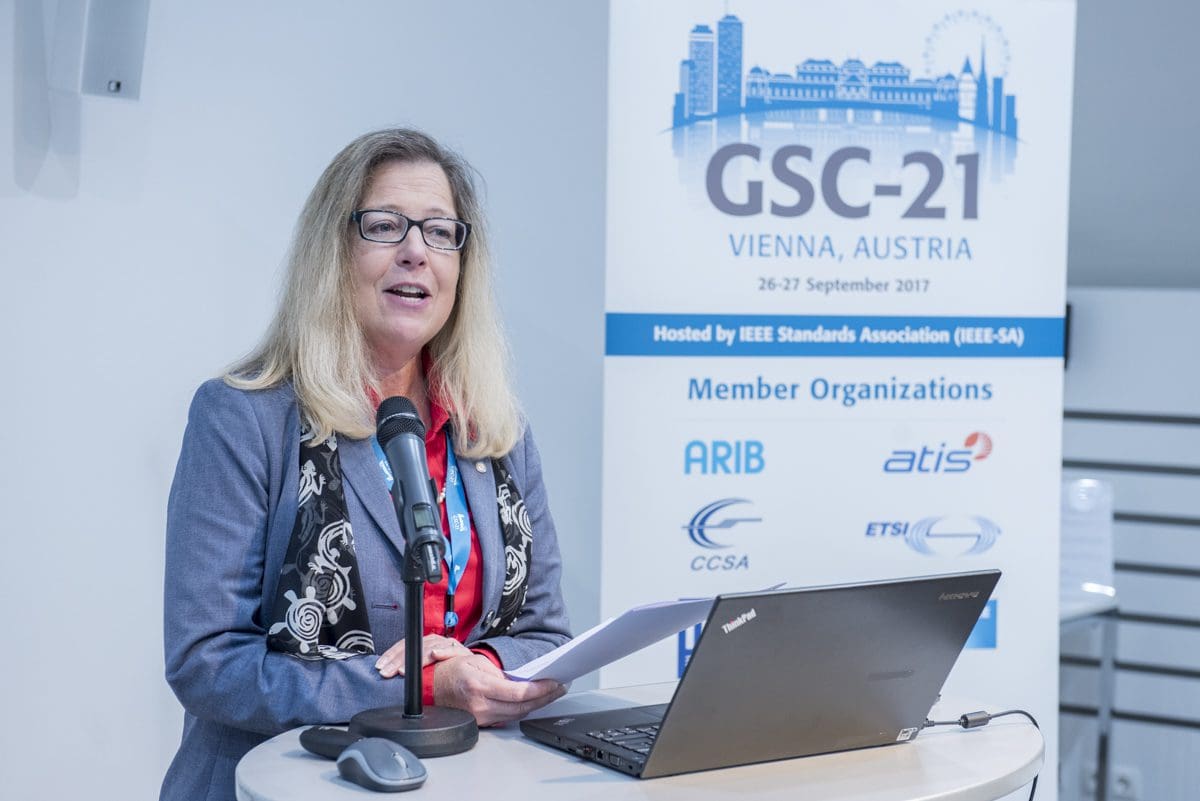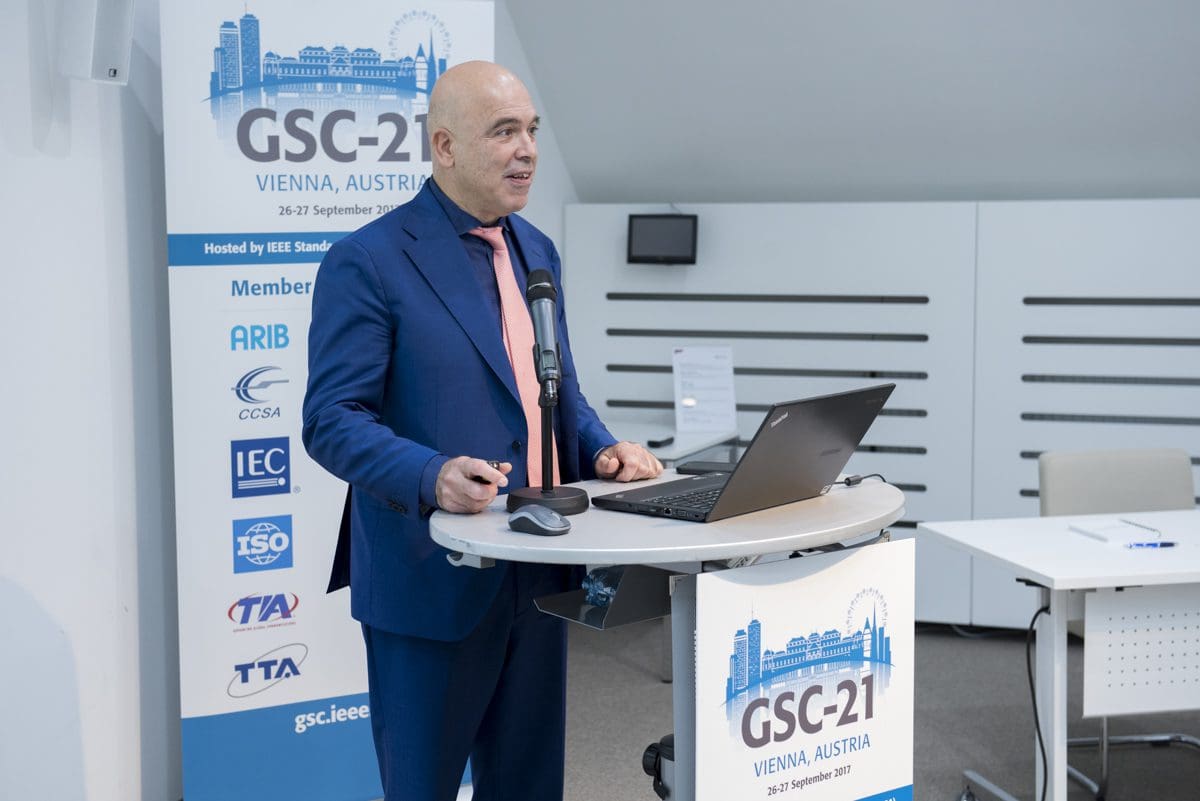IEEE SA recently hosted the 21st Global Standards Collaboration meeting, a gathering of senior officials from national, regional and international standards bodies. This meeting provided a unique opportunity to share strategies and foster dialogue in support of global standards initiatives that take into account all stakeholders’ inputs and insights. GSC is an unincorporated voluntary organization dedicated to enhancing global cooperation and collaboration regarding communications standards and the related standards development environment. GSC-21 was held 26-27 September 2017 at the newly opened IEEE European Technology Centre in Vienna, Austria.
This year’s GSC meeting kicked off with a keynote address from Karen Bartleson, president, IEEE, entitled: Imbuing Trust and Ethical Values in the Design of Standardized Technology Platforms: A 21st Century Challenge. Bartleson’s keynote highlighted the complex public policy issues, technical challenges, and ethical concerns related to two key technology areas: Artificial Intelligence in Autonomous Systems and Smart Cities—emphasizing the role standards-based solutions can play in alleviating hurdles to technological advancement, and in increasing social and economic benefits.

With the global proliferation of artificial intelligence (AI) and autonomous systems (AS), there is a pressing need for deep conversation and open, balanced collaboration among a diverse group of stakeholders, from technology experts working in the field, to policy makers shaping the regulatory environment, to public end-users determining their individual comfort level with the technology. According to Bartleson, “If we are to realize the best version of the world’s AI/AS vision, it is imperative that we comprehensively address the ethical challenges today. Ethics must be a non-negotiable part of our composition as engineers and scientists, and ethics in design must be as ingrained within us as any other guiding precept.”
IEEE presentations at the event included a presentation from Rudi Schubert, director, IEEE SA New Initiatives exploring IEEE initiatives related to AI/AS that focused on the importance of ethics, aligning technologists with policy makers, and promoting open and inclusive technology policy environments. This included an overview of the activities undertaken by The IEEE Global Initiative on Ethics of Autonomous and Intelligent Systems. Schubert also provided insight in to the IEEE P7000TM standards family, highlighting eleven standards working group projects currently underway aimed at developing standards that address key specific areas related to the design and development of ethically-aligned autonomous and intelligent systems.
IEEE SA’s Glenn Parsons provided a comprehensive overview on IEEE’s Smart Cities Initiative, drawing attention to its unique global reach and multi-disciplinary approach to help build a vibrant, worldwide network of cities. Parson’s explained how IEEE’s focus on education, and providing insights and technological expertise, can be leveraged with the involvement of local governments, universities and industries to assist municipalities in managing the transition to urbanization. IEEE SA Industry Connections and IEEE Educational Activities, among other IEEE activities, play a key role in this regard, helping raise awareness of the benefits and downsides of technology to guide the appropriate uses of technology in building smarter cities.

“In today’s technological environment, it is extremely important to encourage and expand interaction and dialogue with global, national and regional standards organizations, creating an environment for early engagement and discussion on emergent technologies, and fostering collaborative technical activities and initiatives to advance technology for the benefit of all,” said Konstantinos Karachalios, managing director of the IEEE SA. “GSC is an ideal forum for achieving this, as well as building closer ties with leading standards organizations, drawing attention to social implications of emerging technologies and building consensus on addressing these human issues in line with advancing these technologies.”
GSC-21 was well-attended and offered attendees the opportunity to network and share ideas on how best to work together to create a future world where technology works to the benefit of humanity.

